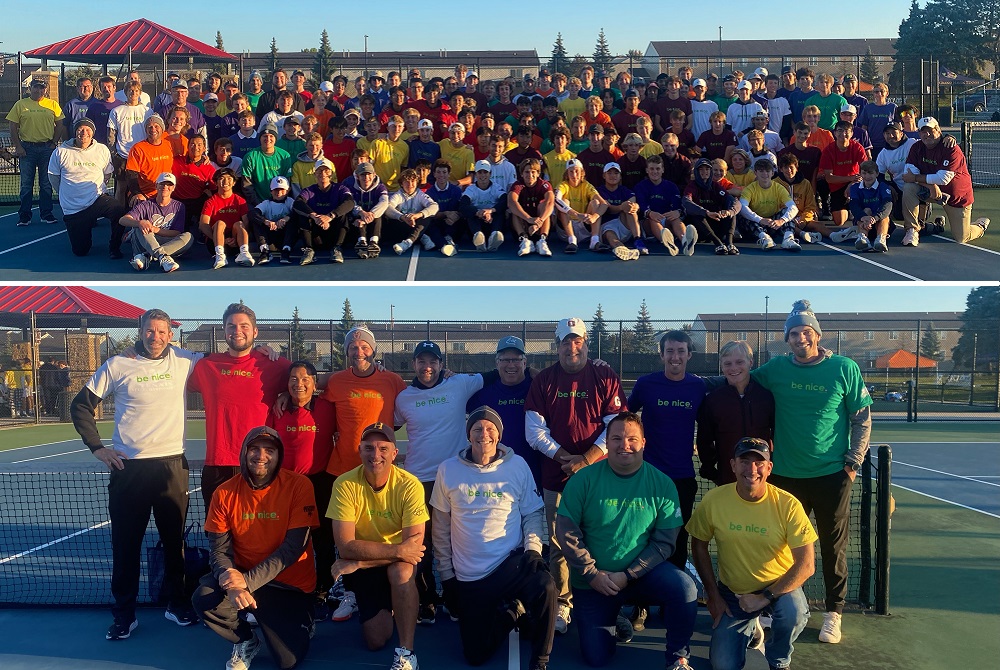
How To Stay Hydrated: 7 Tips For An Active Summer
By
Nick Parkinson, M.Ed., AT, ATC, TSAC-F
Henry Ford Health
June 4, 2024
Not only is water an essential nutrient, it makes up your entire being. We’re 40 to 70 percent water, depending on fitness level and age. And while staying hydrated is always important, it may become more challenging as the weather heats up. Hard-working muscles generate more heat when they’re surrounded by hot air, making it harder for your body to maintain a normal temperature.
 Even a 1 to 2 percent loss of body weight from water can compromise your performance and impact your body’s ability to cool itself. The heart pumps harder, circulation slows and muscles fatigue more quickly. If the loss creeps up to 3 or 4 percent, you’ll be at increased risk of developing heat-related illness and injury, including cramps, heat exhaustion and heat stroke.
Even a 1 to 2 percent loss of body weight from water can compromise your performance and impact your body’s ability to cool itself. The heart pumps harder, circulation slows and muscles fatigue more quickly. If the loss creeps up to 3 or 4 percent, you’ll be at increased risk of developing heat-related illness and injury, including cramps, heat exhaustion and heat stroke.
Even when you’re not active, your body loses more than a quart of water every day through urine, perspiration, sweat and breath, according to the National Institutes of Health. And most days, it’s more than 2.5 quarts.
The goal, of course, is to replace what’s lost. And with a little planning and preparation, you can during any outdoor activity, no matter what the thermometer says. Here’s how:
- Drink before you’re thirsty. Need to quench your thirst? Chances are you’re already dehydrated. Your best defense against dehydration is drinking water on a consistent basis so you never reach the point of thirst.
- Take frequent water breaks. While you might not want to disrupt your workout for a water break, taking time out for some much-needed liquid nourishment will pay off in the long run. Drink 8 to 10 ounces of water (about one full glass) before starting any activity. Once the games begin, drink another 7 to 10 ounces every 20 to 30 minutes.
- Track your intake. Many people don’t know how much water they should drink daily—or even how much water they’re typically downing. If you’re sipping on a 16-ounce bottle, drink eight of them each day—and even more if you’re exercising heavily.
- Consider an electrolyte drink. Working out for more than an hour? Consider sipping a sports drink—or nibbling on some pretzels or a banana to restore lost electrolytes (minerals in the blood that regulate bodily systems). Your body loses important electrolytes like sodium, potassium and chloride when you sweat. A good sports drink can help you replenish them. Coconut water is a great choice, but there are a slew of healthy, low-sugar options on the market.
- Munch on water-rich produce. Water-packed snacks, including melon, berries, bell peppers and grapes, are all good options. A bonus: All of these foods boast a decent hit of electrolytes, too!
- Step on the scale. Weigh yourself before and after a workout. If the scale shows a loss, replenish it with water (gulp 20 to 24 ounces of water for every pound lost). If you’ve lost 3 percent or more of your body weight, chances are you’re severely dehydrated.
- Watch your urine stream. It may seem gross, but checking your pee is probably the best way to determine whether you’re dehydrated. If it looks like watered down, colored lemonade, you’re probably in the clear. But if it’s a deep yellow or light orange, you’re probably not drinking enough fluids.
Keep in mind that heat exhaustion happens quickly—especially during summer activities. It can easily turn into heat stroke, a dangerous condition that can lead to organ damage, seizures, coma and even death. If you feel dehydrated, dizzy or overheated, get out of the sun, sip some water (slowly) and apply cooling compresses to your head, neck and chest. If your symptoms don’t improve quickly, get to a doctor or call 9-1-1.
Nick Parkinson, M.Ed., AT, ATC, TSAC-F, is the supervisor of athletic training and sports performance at Henry Ford Health. Learn more about Nick.
To find a sports medicine provider at Henry Ford Health, visit henryford.com/athletes or call 313-651-1969.

O-K Red Tennis Rivals Team Up to Promote Mental Health Awareness
By
Jon Ross
MHSAA Director of Broadcast Properties
October 7, 2022
The Ottawa-Kent Conference Red boys tennis championship was decided Saturday, but all eight teams also teamed up for something bigger.
All participants from league members Caledonia, East Kentwood, Grand Haven, Grandville, Hudsonville, Jenison, Rockford, and Holland West Ottawa warmed up together, wearing special “be nice.” shirts in their respective school colors.
The Mental Health Foundation of West Michigan provides the be nice. program, with its mission to promote mental health awareness and prevent suicide through education with a four-step action plan (Notice, Invite, Challenge, Empower). Additionally, be nice. provides mental health awareness training to all head coaches of MHSAA-sponsored sport teams.
“Over the past four years, coaches have received mental health and suicide prevention education by learning the be nice. action plan through annual rules meetings. Now these coaches are bringing it to their athletes and parents,” said Christy Buck, executive director of the Mental Health Foundation of West Michigan. “To see these coaches recognize the importance of having mental health discussions on their teams with their athletes gives me the chills. For the entire O-K Red, 140 coaches and athletes, to then take it a step further and bring awareness to their community is incredible. The information people received that day, without a doubt, started important conversations that will be life-changing for someone who was struggling, and that's what we're trying to do. The be nice. team program is simple, accessible, and it's going to save lives."
Leading up to the competition, every team had access to a be nice. team training that taught them to recognize the signs and symptoms of a mental illness and how to take action when they notice these changes. This program is a simple and effective way to empower coaches and athletes with a game plan for mental health concerns. Parents and spectators also were briefed on the be nice. action plan before the tournament began.
“Tennis is competitive and intense in the Red, but for the players and coaches, we see tennis as an extension of something bigger. It's about life, friendships, camaraderie, learning how to deal with adversity, learning how to lose, learning how to win, coming together as a family and creating collective goals,” said Rockford varsity tennis coach Tom Huizing. “Every day we try to live the be nice. way. Not only within our teams or within our conference, but within our lives outside of tennis.
“We've had many be nice. matches within the O-K Red, but now we wanted to set the standard as a conference and let everyone know that we are in this life together. We will notice, invite, challenge, and empower. All of us, not just one player or one coach or one team. Every player, every coach, every team. We want to walk the walk, not just talk the talk. So that's what we're doing on the biggest stage for our tennis conference. We are coming together at the O-K Red Conference finals and we are making a pact as an entire conference to be nice.”
Hudsonville and West Ottawa ended the season as co-champions of the O-K Red.
PHOTO The O-K Red brought together 140 athletes and coaches for its boys tennis championship tournament and also in an effort to bring awareness through the be nice. program. The entire group is pictured above, and the coaches below. (Photo courtesy of be nice.)

